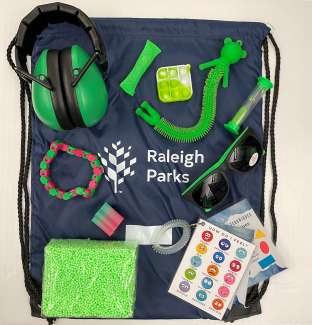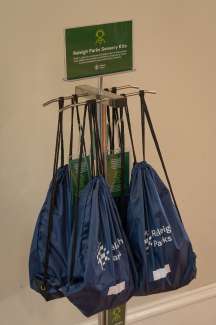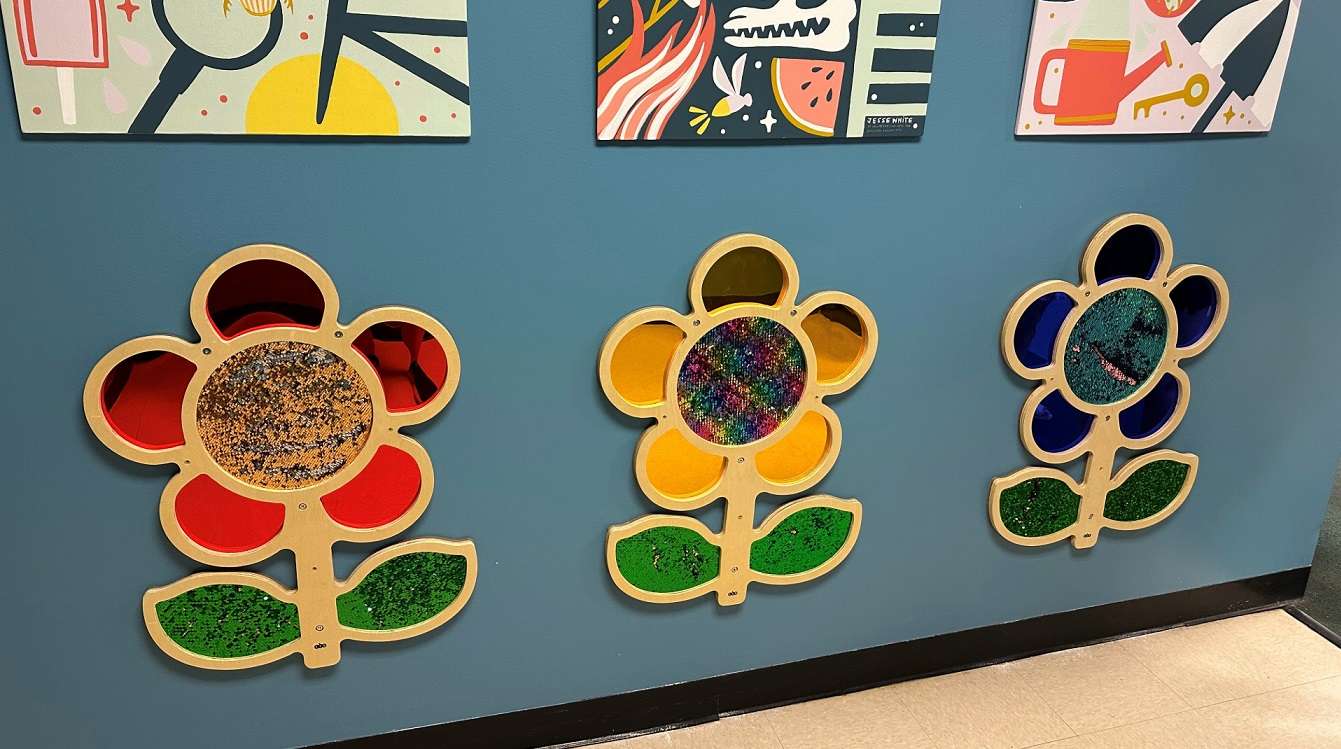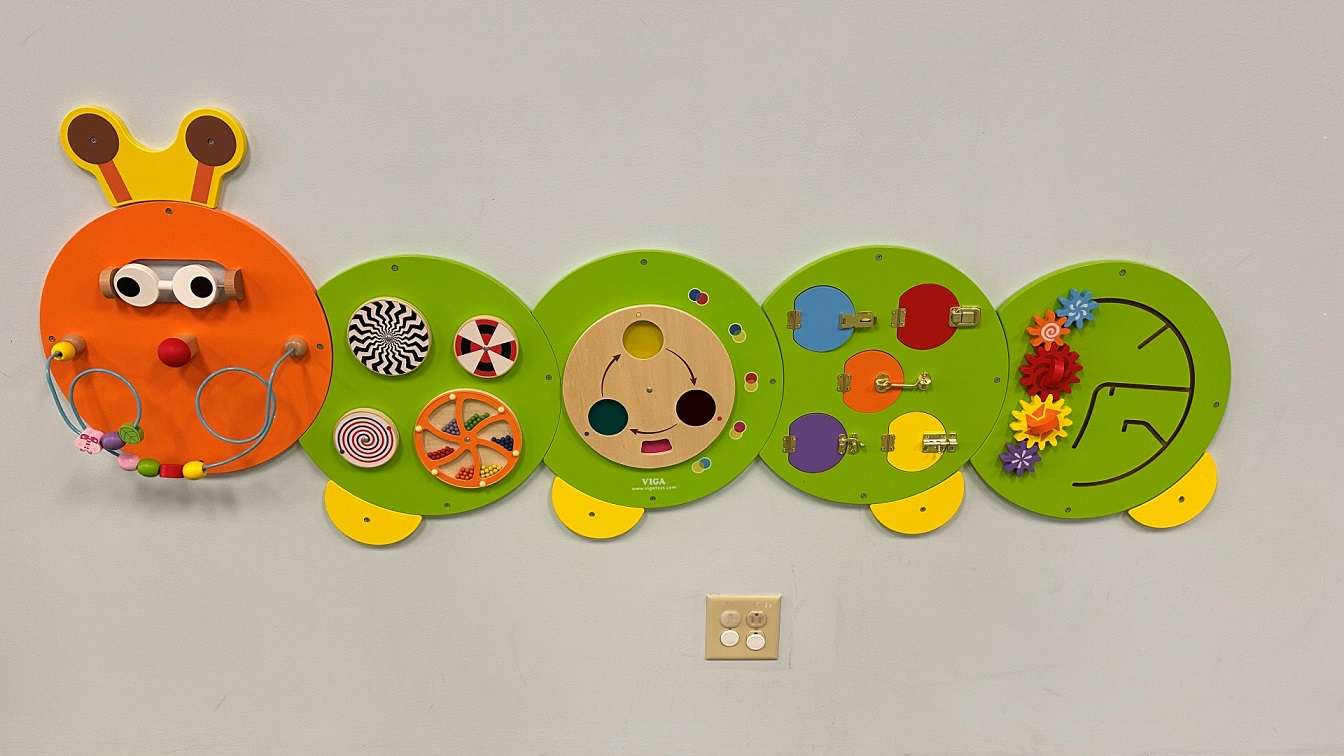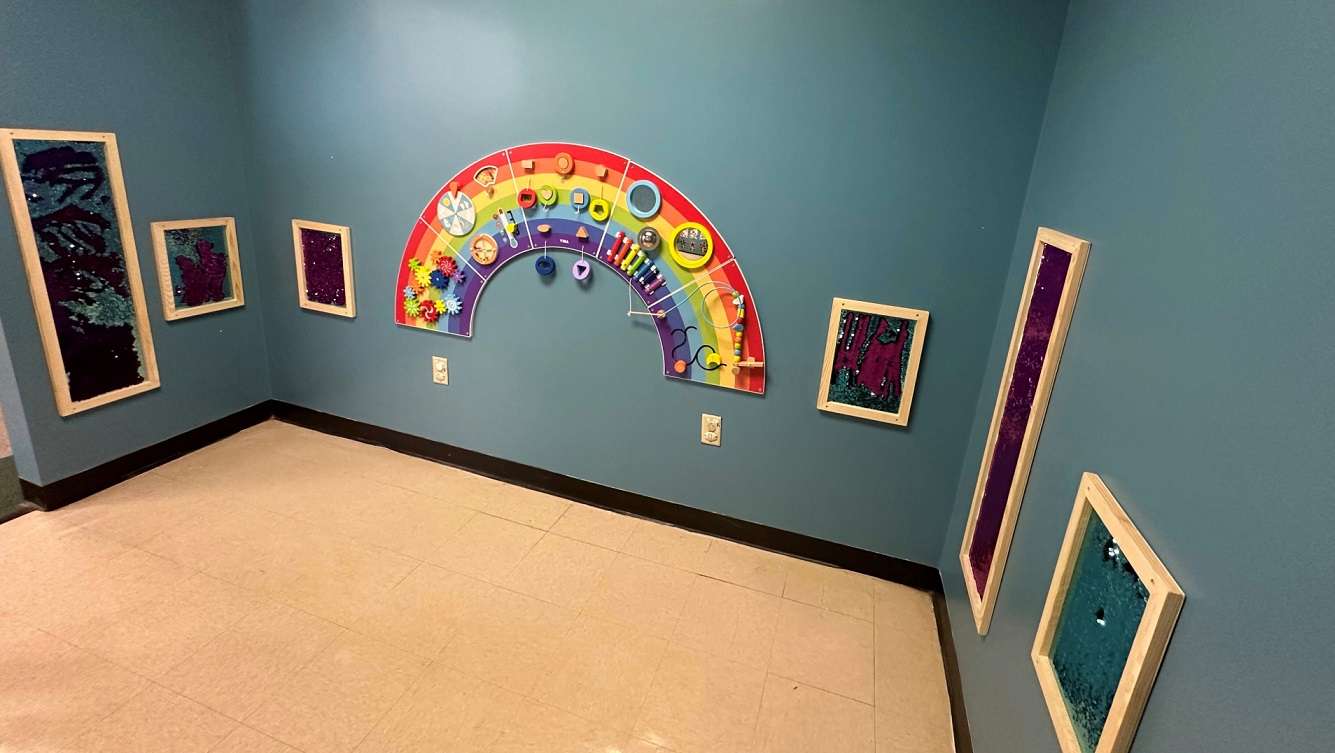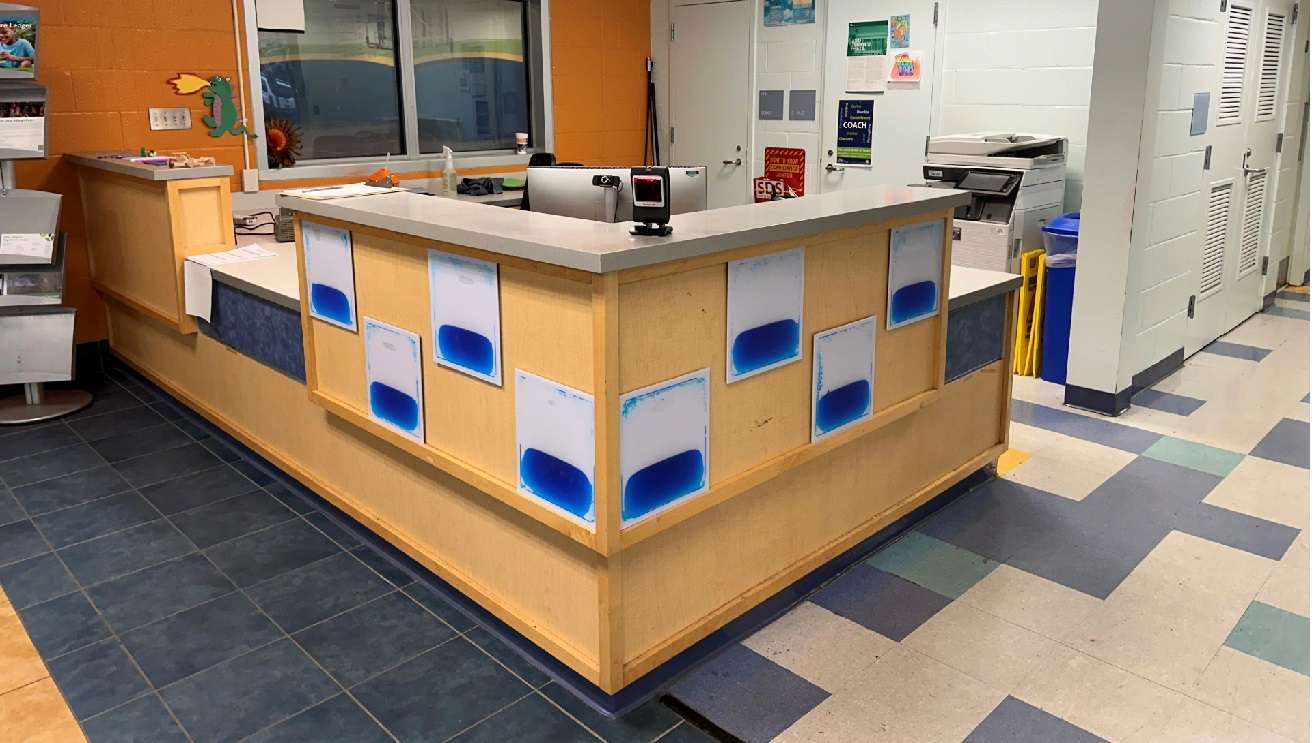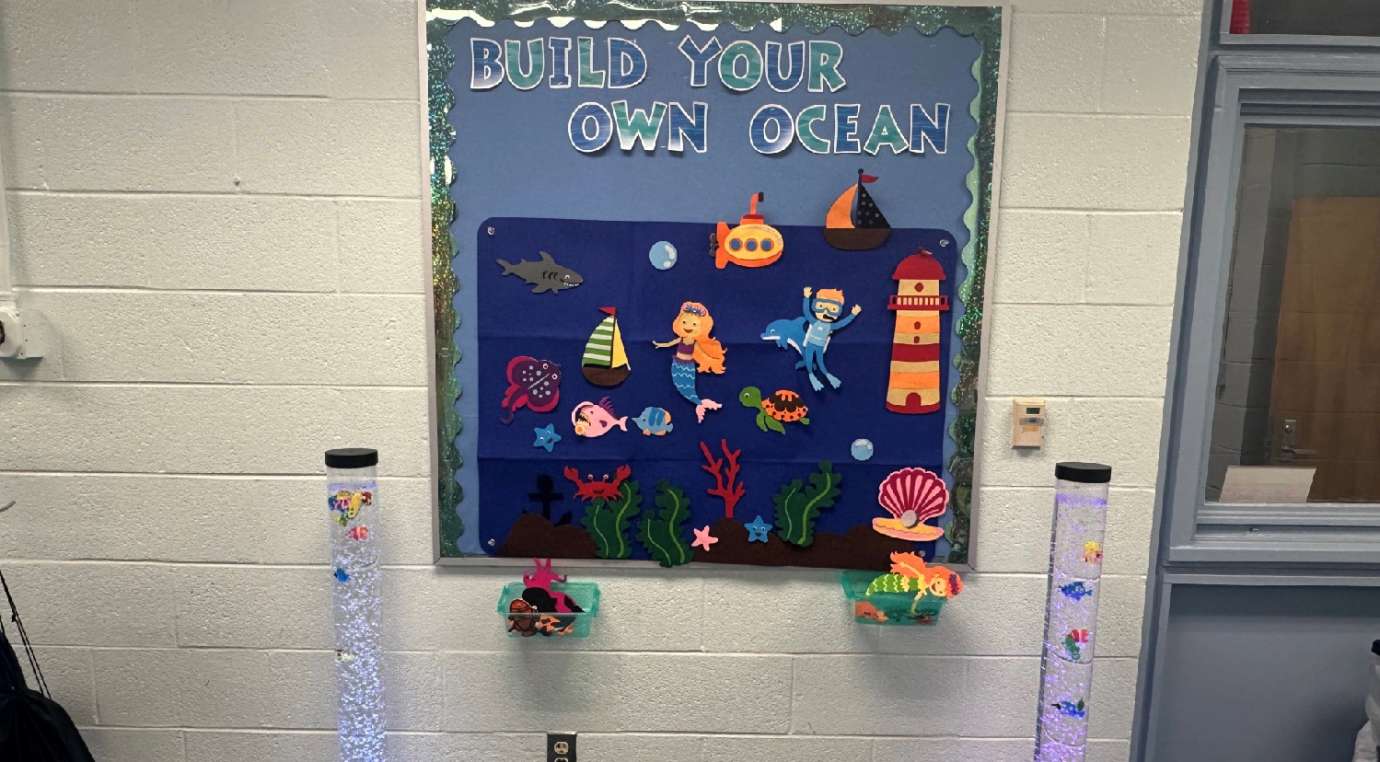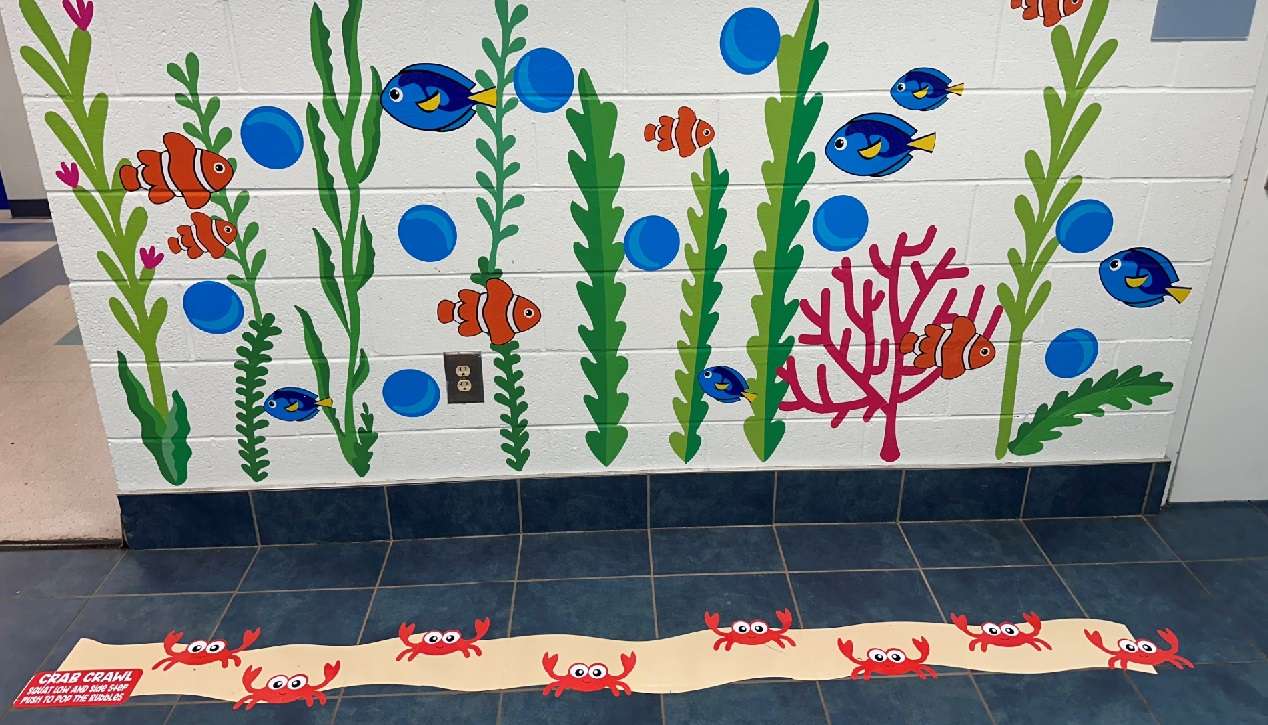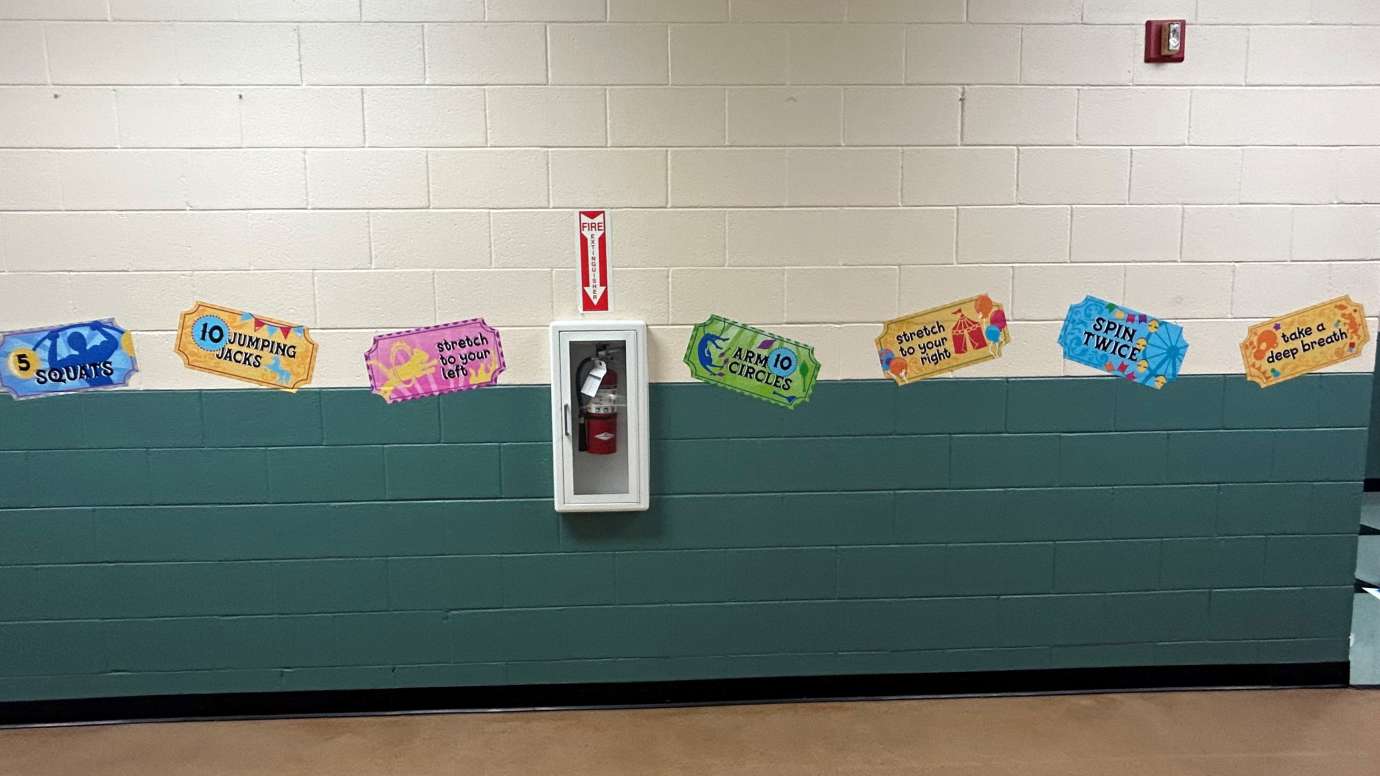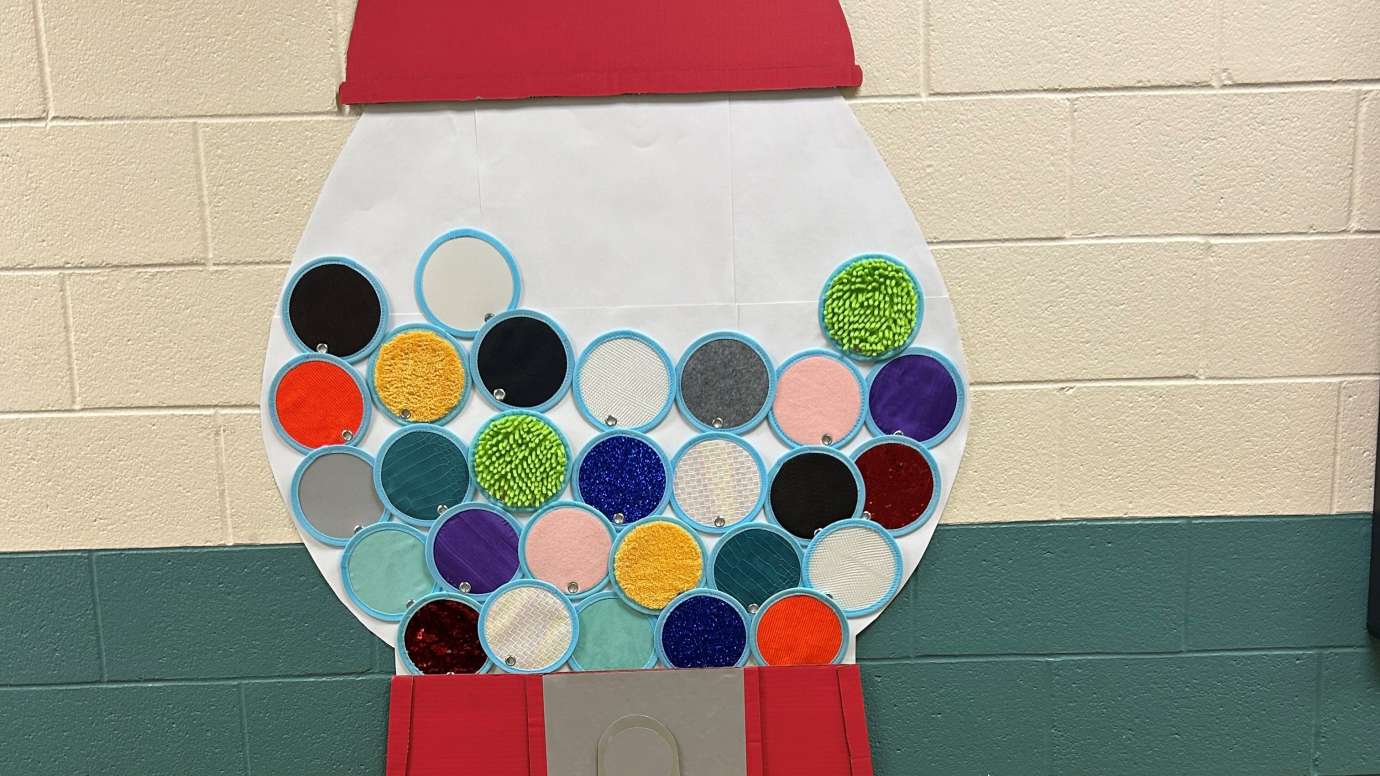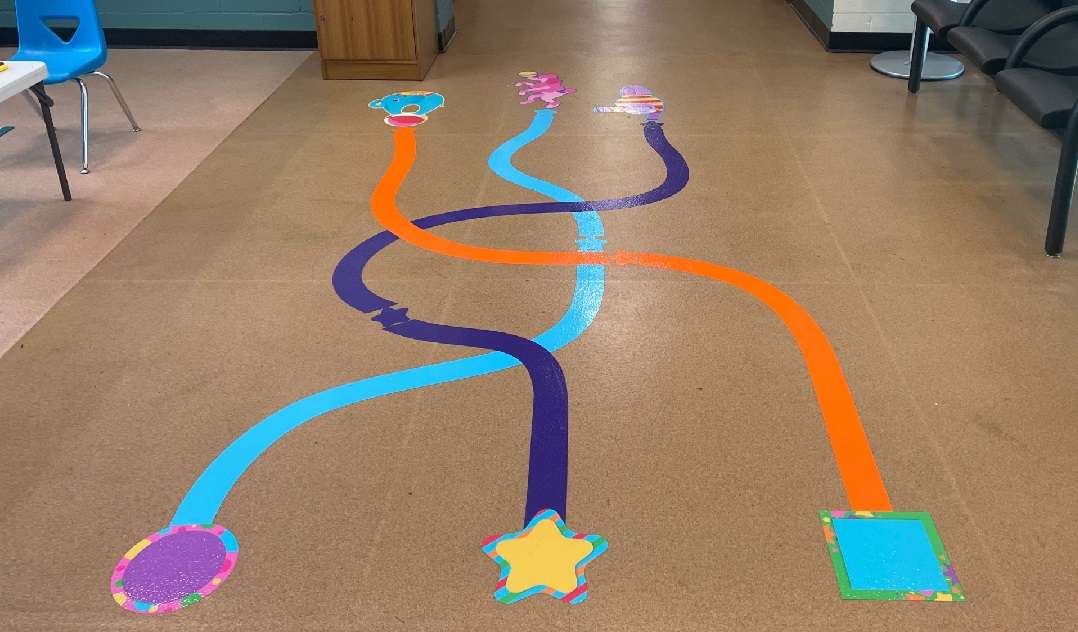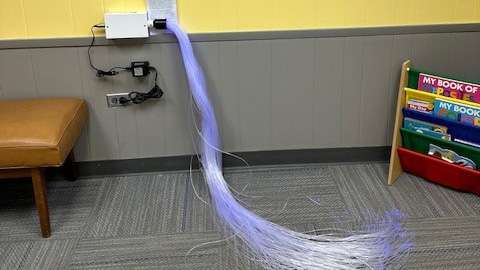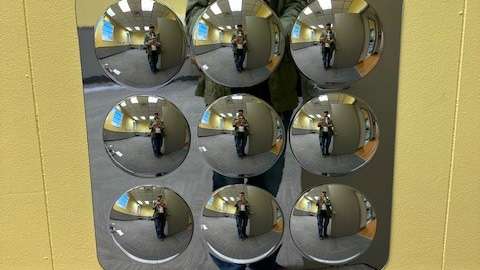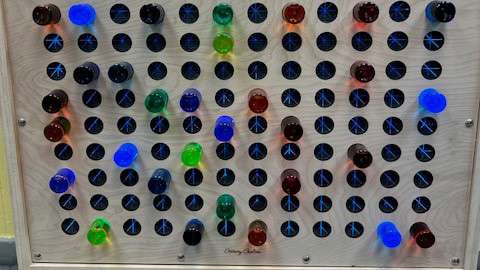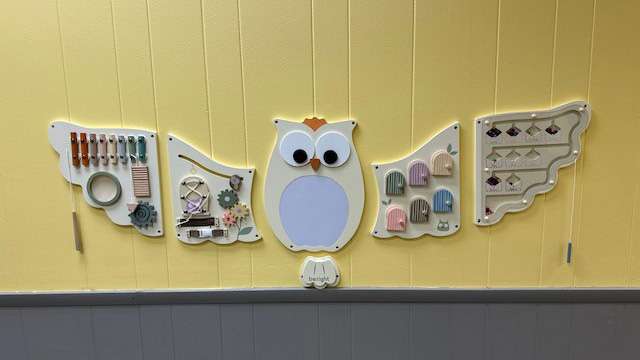Jump To:
Did you know that one in six individuals has a sensory need or an invisible disability, and common, unpreventable stimuli can overwhelm these individuals – certain sounds, harsh lights, large groups, and even particular smells – leaving them no choice but to withdraw from participation?
These resources below were designed to lessen sensory overload and create safe spaces, allowing people of all abilities to safely participate and thrive in our programs, events, and facilities. We are committed to continuing to expand our library of sensory resources to make Raleigh Parks a place for everyone to grow, learn, and play!
What they are:
Bags containing several tools intended to reduce overstimulation, such as:
- Headphones
- Sunglasses
- Fidget toys
- Communication cards
How they work:
If you see a sensory kit stand at our community centers or events, feel free to grab a bag and use the supplies as needed. Upon conclusion of the event or program, return it back to the stand, at which point staff will sanitize the items before the next use.
Where you can find them:
- Community and Neighborhood Centers
- Pullen and Sertoma Arts Centers
- All seasonal and year-round pools
- City of Raleigh Museum
- Lakes and Nature centers
- Select Raleigh Parks events
- Select neighborhoods, community events, and community gathering places by way of the Community Engagement Van
What they are:
Multi-sensory environments that are used to educate, stimulate, relax, calm, or energize, as a multi-sensory experience or single-sensory focus.
Where you can find them:
- Durant Nature Preserve Sensory and Nature Play Garden
- Sertoma Art Center Playground Sensory Garden
- Durant Nature Preserve Wall

